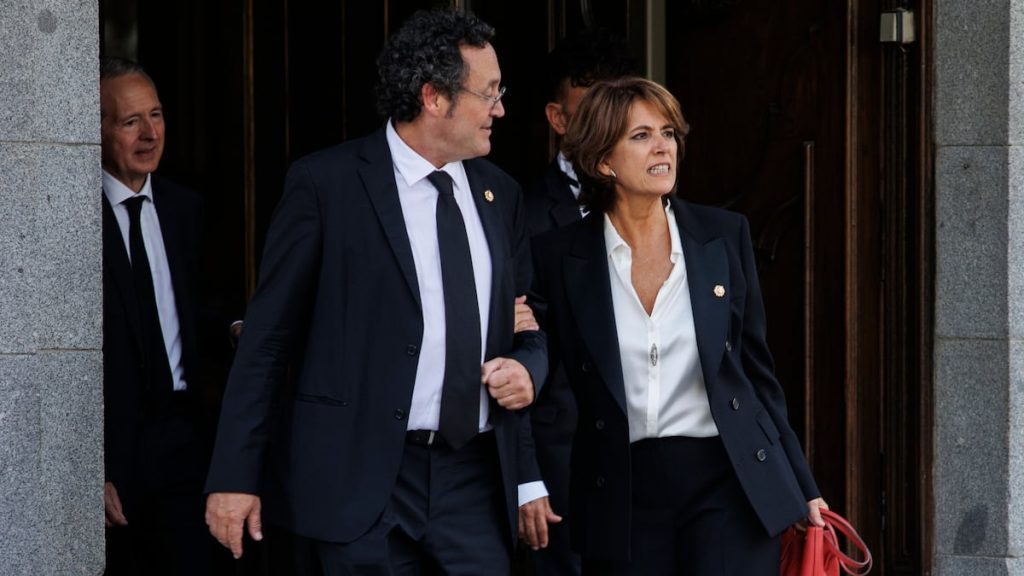The Supreme Court has overturned Dolores Delgado’s appointment as the Prosecutor of the Democratic Memory Department. The decision was made by a majority of the Fourth Section of the Administrative Litigation Chamber, which has ordered that the proceedings be sent back to the Prosecutor’s Council to determine if Delgado is suitable for the position. This is the second time that the Supreme Court has annulled a discretionary appointment involving Delgado by her successor at the head of the Attorney General’s Office. In November last year, the Administrative Litigation Chamber revoked her promotion to Chief Prosecutor, concluding that it was an abuse of power and that the only purpose of the appointment was to promote Delgado after she had left her position as Attorney General.
This previous decision did not have practical consequences at the time because Delgado was no longer the Chief Prosecutor of the Military Department, but rather the Chief Prosecutor of Human Rights and Democratic Memory, a position to which she was appointed in June 2023 and which is now being annulled by the Supreme Court. The ruling reflects the ongoing scrutiny of Delgado’s appointments, raising questions about the motives behind her career advancements within the Prosecutor’s Office. This latest decision by the Supreme Court highlights the importance of transparency and accountability in the selection process for key positions within the judiciary.
The controversy surrounding Delgado’s appointments underscores broader concerns about the independence and integrity of the judiciary in Spain. Critics argue that political considerations may have influenced Delgado’s career progression within the Prosecutor’s Office, potentially undermining the impartiality of the justice system. The Supreme Court’s decision to annul Delgado’s appointment as Chief Prosecutor of the Democratic Memory Department is a significant development in the ongoing debate about the rule of law and judicial independence in Spain. It remains to be seen how this decision will impact future appointments within the Prosecutor’s Office and the broader legal system in the country.
The Supreme Court’s decision to send Delgado’s appointment back to the Prosecutor’s Council for further review underscores the need for transparency and accountability in the selection process for key positions within the judiciary. The ruling reflects the court’s commitment to upholding the principles of merit and independence in appointments to senior positions within the Prosecutor’s Office. It also serves as a reminder of the importance of ensuring that appointments are made based on qualifications and experience, rather than political considerations. Ultimately, the outcome of this case will have important implications for the integrity and independence of the judiciary in Spain.















